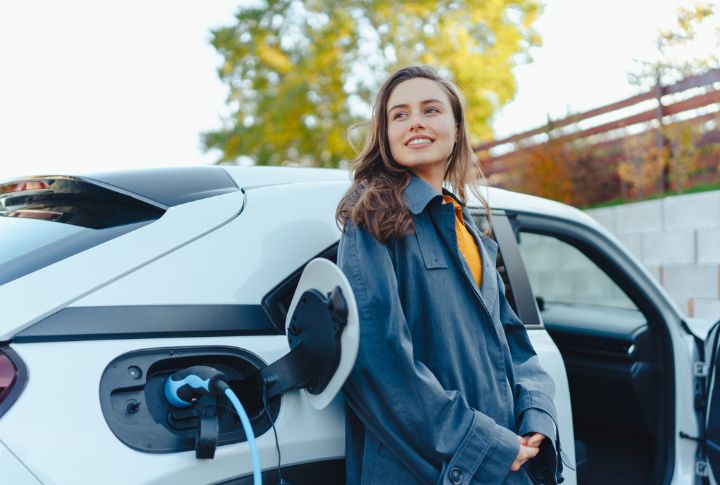
17 Reasons Electric Cars Might Not Be the Answer

Electric cars have become increasingly popular and are often seen as the solution to our environmental problems. With promises of cleaner air and a sustainable future, it’s easy to get swept up in the hype. However, beneath the surface lies a host of hidden drawbacks that many advocates overlook. Here are 17 compelling reasons why banning electric cars might be the better option.
Environmental Impact of Battery Production

Producing electric car batteries requires extensive mining for rare metals, which devastates ecosystems. This process emits significant greenhouse gases, counteracting the benefits of electric vehicles. Moreover, energy-intensive manufacturing contributes to pollution. In the end, the environmental cost might outweigh the benefits.
Strain on Electrical Grid

An influx of electric cars demands more electricity, straining an already overburdened grid. This can lead to blackouts and increased energy costs for everyone during peak times. Investment in grid infrastructure is essential but often overlooked. Without improvements, the reliability of our power supply is at risk.
Limited Range and Infrastructure

Electric cars often struggle with limited range, making long-distance travel inconvenient. Charging stations are less widespread than gas stations, creating anxiety for drivers on longer trips. Rural areas particularly lack adequate charging infrastructure. This limitation discourages adoption and presents a significant inconvenience.
Impact on Oil Industry and Economy

The shift to electric cars threatens millions of jobs in the oil and gas industry. This transition could devastate communities reliant on these industries, leading to economic instability. The loss of oil revenue would also impact public services funded by these taxes. A sudden shift could have far-reaching financial consequences.
Disposal and Recycling Challenges

Batteries in electric cars have a finite lifespan and are difficult to dispose of. Improper disposal leads to environmental hazards, with toxic chemicals leaching into the ground. Recycling processes are complex and not yet widespread. Without effective solutions, this could become a significant environmental issue.
Affordability and Accessibility

Electric cars remain expensive for many consumers. The high upfront cost and limited availability of affordable models restrict widespread adoption. Financial incentives help, but not enough to make a significant difference. This disparity leaves many without access to cleaner transportation options.
Resource Depletion and Supply Chain Issues

The materials required for electric car batteries are finite and sourced from politically unstable regions. This creates supply chain vulnerabilities and potential for conflict. Rapid depletion of these resources could lead to shortages and increased prices. Relying on scarce resources is unsustainable in the long term.
Impact on Gasoline Tax Revenue

Gasoline taxes fund vital infrastructure projects, from road maintenance to public transit. Electric cars reduce gasoline consumption, leading to a decline in tax revenue. This shortfall could result in reduced funding for essential services. Finding alternative revenue sources is a complex challenge.
Safety Concerns

Electric cars come with unique safety risks, including potential battery fires. The fires are hard to extinguish and can cause significant damage. Additionally, silent operation poses a risk to pedestrians who may not hear them approaching. Safety standards need to adapt to these new challenges.
Impact on Public Transportation and Urban Planning

Widespread adoption of electric cars might reduce the emphasis on developing public transportation. This shift could lead to increased traffic congestion and urban sprawl. Effective urban planning relies on balanced transportation options. Electric cars alone cannot address the complexities of urban mobility.
Public Health Concerns

While electric cars reduce tailpipe emissions, they are not entirely pollution-free. The production and disposal processes still contribute to air and water pollution. Additionally, tire and brake wear and tear release harmful particles, which negatively impact public health.
Challenges in Charging Infrastructure Expansion

Expanding the charging infrastructure requires significant investment and space. Urban areas face particular challenges in integrating charging stations. Coordination with existing infrastructure and utilities is complex. The slow rollout hampers the convenience and appeal of electric cars.
Grid Decarbonization Challenges

Electric cars only offer environmental benefits if the grid is decarbonized. Much of the U.S.’s electricity still comes from fossil fuels. Without cleaner energy sources, electric cars shift emissions from tailpipes to power plants. This shift fails to achieve true environmental gains.
Wildlife Habitat Threats

Mining for battery materials destroys wildlife habitats, threatening biodiversity. Areas rich in minerals like lithium and cobalt are often ecologically sensitive. As a result, species can be lost and ecological balance can be upset, making it crucial to protect these habitats.
Increased Carbon Footprint

The entire lifecycle of electric cars, from production to disposal, has a significant carbon footprint. Manufacturing, especially battery production, emits large amounts of CO2. This footprint can sometimes surpass that of traditional vehicles. Evaluating the total impact reveals unexpected environmental costs.
Impact on Air Quality

While electric cars reduce local air pollution, they do not eliminate it. The production of electricity, especially from coal and natural gas, still pollutes the air. Additionally, manufacturing processes release pollutants. A holistic view shows mixed results for air quality improvement.
Disruption of Traditional Automotive Service Industry

Electric cars require maintenance different from traditional vehicles, disrupting the automotive service industry. Many mechanics lack the skills to repair electric vehicles, threatening their livelihoods. The transition could lead to job losses and require extensive retraining. Supporting these workers is essential to avoid economic displacement.


